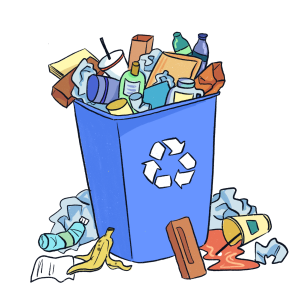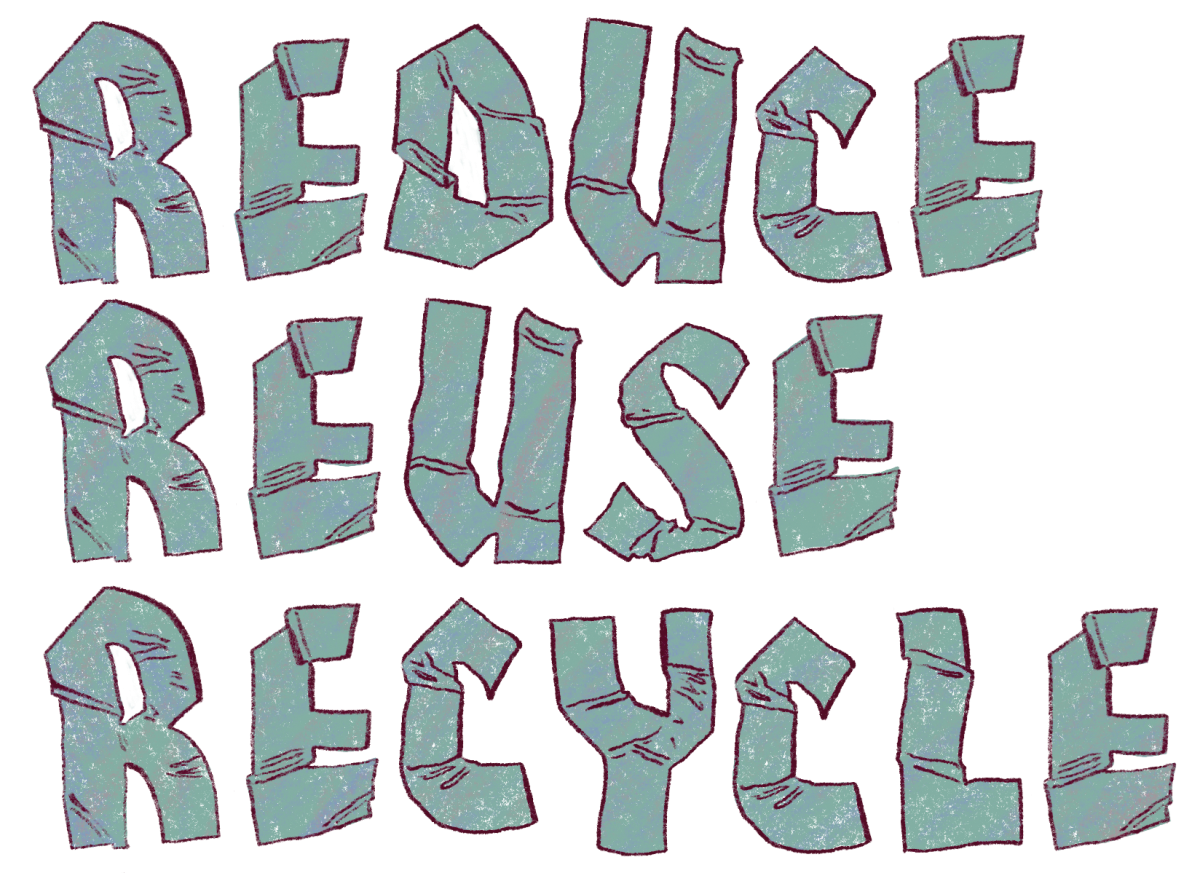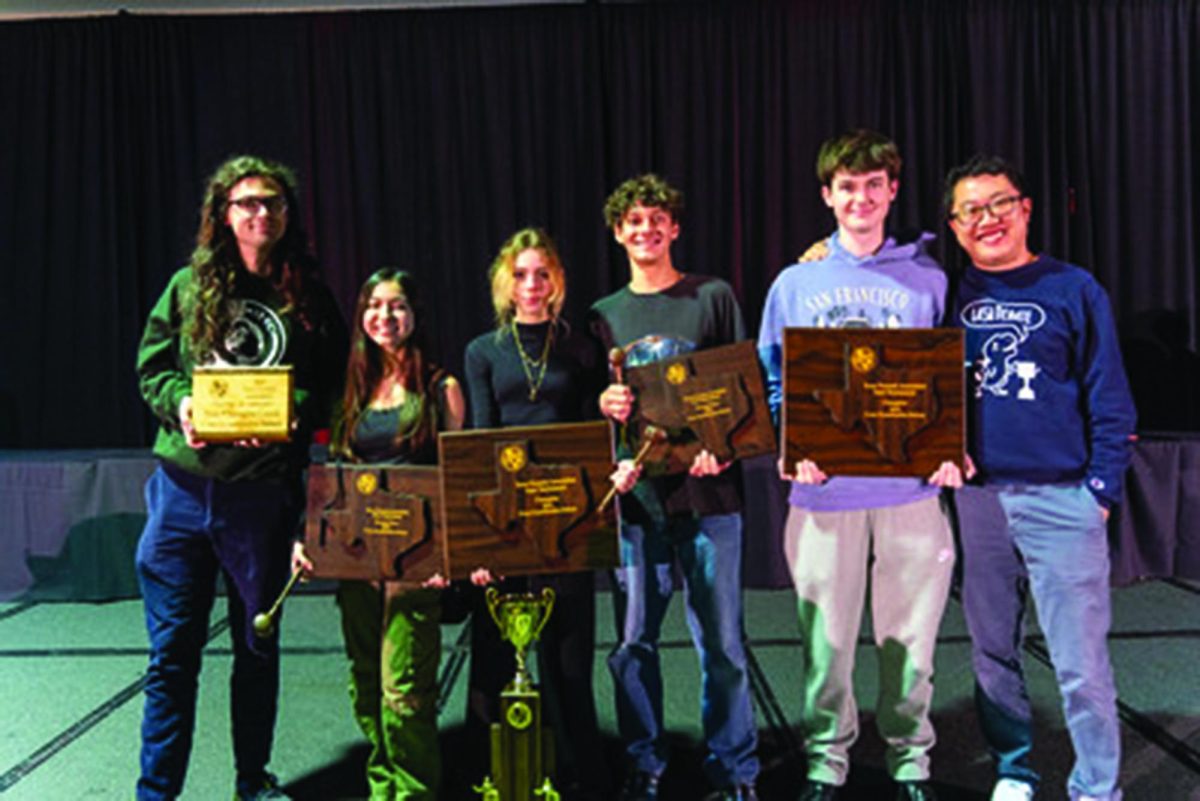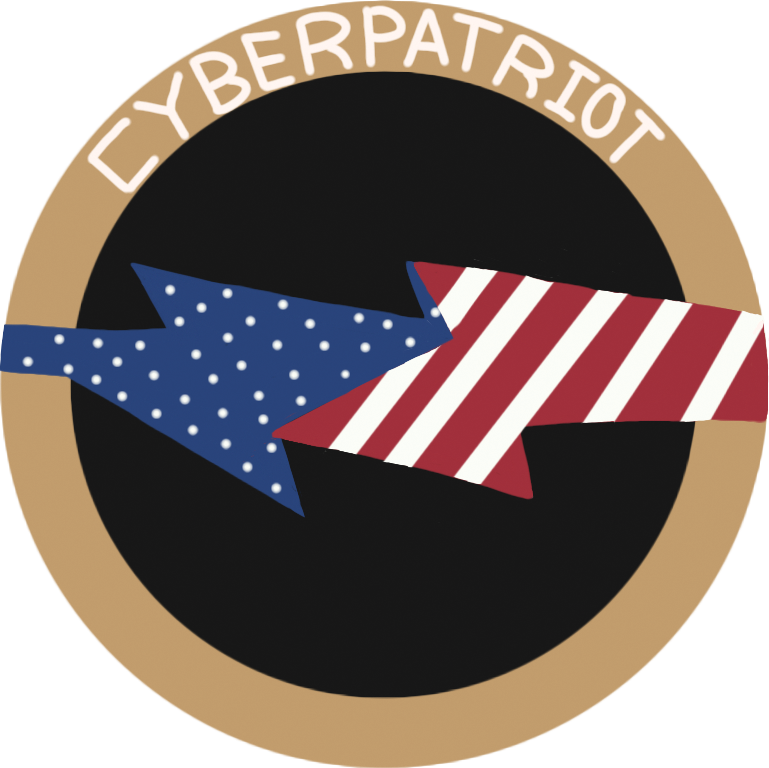Recycling containers can be found throughout LASA. However, there’s no common knowledge of what the recycling practices at LASA are. The average student produces approximately 67 pounds of waste during a school year, according to EarthShare, which brings up the question of how waste reduction is practiced in school districts to combat this issue. To improve this problem, the Austin Independent School District (AISD) students, faculty, and committee members believe educating people correctly has to be the first step.
Students and staff have been concerned with the possibility that AISD, and LASA, don’t recycle. However, after investigating the matter, it was confirmed that LASA does recycle diligently, dismissing false rumors and reassuring the concerned students and staff.
Ana Echeverria, the AISD energy conservation engagement foreman who focuses on energy and water conservation, provides zero waste training to educate people on how to transition into a zero waste and environmentally conservative lifestyle. Echeverria said she was surprised when she heard that we thought that AISD doesn’t recycle. While explaining that AISD does recycle, she also admitted that the way they do so isn’t practical.
“Of course we do,” Echeverria said. “But let me tell you, I realized that something was missing in how zero waste was set up. We need to create a culture of zero waste, a culture of sustainability. That is not something that you can simply say, ‘Oh, we’re gonna set up, you know, the zero waste organization’. That is the beginning of creating a culture.”

Echeverria stated her beliefs on the necessity of an environmentally sustainable culture that students are also echoing. Junior Rue Nava, a member of the AISD environmental stewardship advisory committee, expressed her concern about how zero waste is set up and how it could be fixed.
“The [recycling programs] aren’t always strictly enforced or taught,” Nava explained. “Transparency with the district is a common issue that the board faces… Recycling could be reinforced with more specialized fields like zero waste, conservation, transportation services, and outdoor learning.”
Junior Nishtha Verma, who is also part of the AISD environmental stewardship advisory committee, agrees with Nava that there is a lack of education about recycling. She takes it upon herself to propose solutions for LASA by advocating for more education around recycling and waste reduction.
“I think that it would be beneficial to give an advisory lesson to everybody,” Verma said, “because it needs to be brought to the attention of our students that it’s important. I’ve never heard anybody saying, this goes in compost, or I suppose in trash. So people just put it [the trash] wherever.”
Nava believes that the lack of education about recycling is a problem that goes beyond people’s time at LASA and is an issue in their daily lives as well. Similarly to Echeverria, she feels that the lack of recycling is a result of the poor environmental management of AISD.
“AISD needs to take accountability for its lack of effort in making its sustainable practices accessible,” Nava said. “We still don’t see enough initiative to see any fast-paced change. This is also because caring about the environment isn’t prioritized as much as other issuers, and when it is, it’s not done well.”
An idea that Echeverria has found useful when encouraging students to recycle is green teams, where students will have the opportunity to band together and think of innovative solutions to implement in schools. She explained that green teams can encourage students to be more involved in the environmental challenges in their school.
AISD needs to take accountability for its lack of effort in making its sustainable practices accessible. We still don’t see enough initiative to see any fast-paced change. This is also because caring about the environment isn’t prioritized as much as other issuers, and when it is, it’s not done well. — Nishtha Verma
Along with making green teams, Echeverria believes that it is important to create a sense of belonging in the school community. According to her, the school belongs to the students and staff, and if they truly felt that, they would want to protect their school.
“As long as people don’t feel that it belongs to them, they are not going to care the same for the school,” Echeverria said. “That is sometimes the big barrier and why people litter here. Why? Because they think someone is paid to pick that up, but they are not here to pick up things like a waiter from the table of a restaurant.”
Nava explained that a major reason students don’t recycle is that students don’t understand how to recycle and the consequences of not recycling. She hopes that in the future, AISD takes steps to raise the awareness needed for students to recycle.
“I only ever remember being taught about recycling in elementary school, even now, we’re expected to know what to recycle when the process is a lot more intricate than people realize,” Nava said. “Not everybody has the right education for that.”







